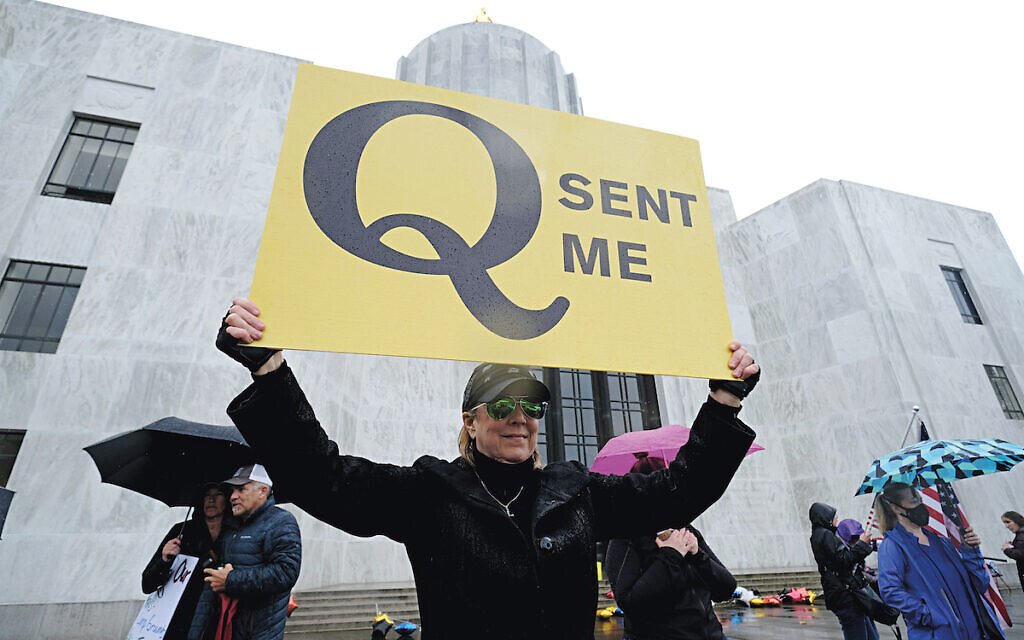JN INVESTIGATION: Inside QAnon – Comfort through conspiracy
A secret cabal controlling the world? Now where have we heard that one before
With his long white hair, David Icke is easy to spot even by those at the back, as he rises to the platform. Handed the mic, the 68-year-old British conspiracy theorist, a Holocaust-denying advocate of The Protocols of the Elders of Zion, seems to be in the mood. At his feet, thousands of mask-less fans. It is 29 August 2020, and they are packed into Trafalgar Square to protest coronavirus lockdown measures.
“This world is controlled by a tiny few people,” he begins, barely five minutes into his set. A few minutes later, he has the crowd (including Jeremy Corbyn’s brother, Piers) manically chanting “Freedom!” Fascism, in his telling, comes dressed as safety.
As the cameras span the crowd listening to talk of “the illusion pandemic” and of “contagion fear designed to control you”, one letter stands out amid the banners and placards – Q. It refers to a conspiracy theory known as QAnon. Settle in.
Get The Jewish News Daily Edition by email and never miss our top stories Free Sign Up
QAnon is the belief that US President Donald Trump is waging a secret war against a shadowy ‘cabal’ that controls governments, banks, entertainment and all manner of industries from pharmaceuticals to agriculture, keeping people serfs.
This cabal is a satanic “deep state” whose members include billionaire liberal philanthropists, left-wing A-listers and Democrats. All are engaged in paedophilia and human trafficking, harvesting the blood of abused children for a life-extending chemical compound. The Anti-Defamation League (ADL) politely describes it as “remarkably elaborate”.
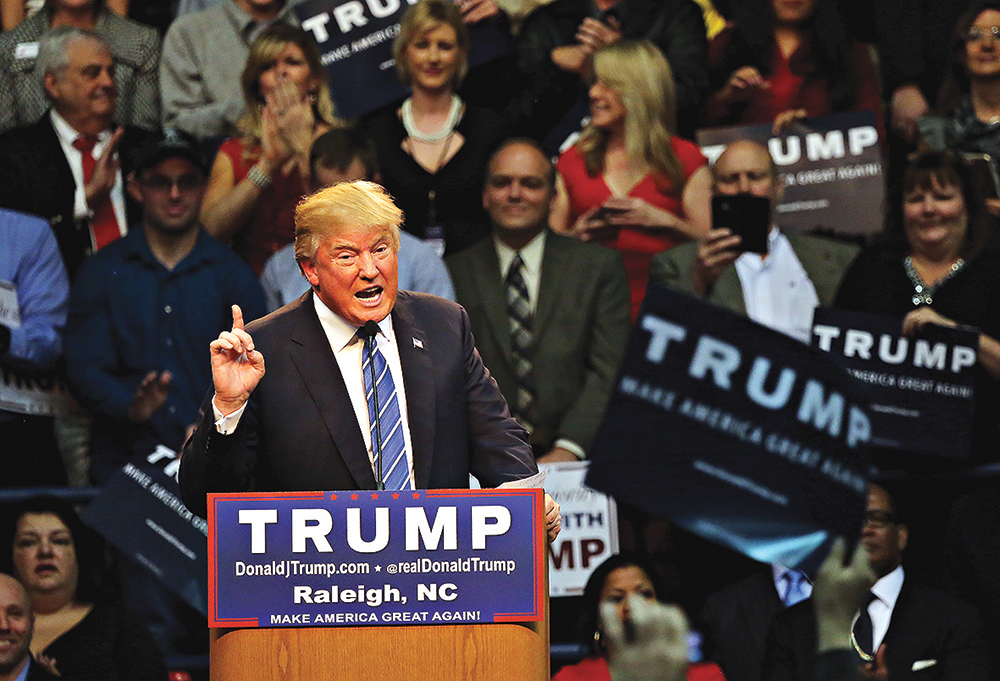
It began in 2017 with anonymous encrypted posts from the person or entity ‘Q’ on chat site 4chan and continues today on successor site 8kun. Believers think ‘Q’ is someone in the top echelons of government, with high-level security clearance. What started as a trolling and disinformation account has grown. The ADL estimates that there are now “tens of thousands” of Qs, mainly US-based adherents. Some are even running for political office – and succeeding.
It need hardly be said that aspects of QAnon lore mirror longstanding antisemitic tropes. “The belief that a global ‘cabal’ is involved in rituals of child sacrifice has its roots in the antisemitic trope of blood libel, the theory that Jews murder Christian children for ritualistic purposes,” says the ADL.
“In addition, QAnon has a deep-seated hatred for [Hungarian Jewish philanthropist] George Soros, a name that has become synonymous with perceived Jewish meddling in global affairs, and QAnon’s ongoing obsession with a global elite of bankers also has deeply antisemitic undertones.”
In May, the FBI identified QAnon as an “anti-government, identity-based fringe political conspiracy theory very likely to motivate domestic extremists to commit criminal, sometimes violent activity”. Trump calls Q adherents “patriots”.
Critics say he is playing with fire – conspiracies have already led to Jews being killed. On 27 October 2018, a man killed 11 and injured several others at the Tree of Life Congregation in Pittsburgh, having just reposted an online cartoon depicting the ‘Zionist Occupation Government’ conspiracy theory and saying the Hebrew Immigrant Aid Society “likes to bring invaders in that kill our people”, adding: “I can’t sit by and watch my people get slaughtered. Screw your optics, I’m going in.”
QAnon now stretches into mainstream sites such as Facebook, Reddit, YouTube, Twitter and Discord, and pushes a welter of conspiracies in other areas, such as Covid-19 and vaccinations. Some were quick to close in on it, others less so.
Facebook only recently restricted or took down 10,000 pages, groups or Instagram accounts linked to QAnon or US militias, after researchers said the tech giant’s lethargy was helping to push dangerous myths online. The company said those using the accounts had “demonstrated significant risks to public safety”.

Joan Donovan, a Harvard media researcher, warns against complacency over the QAnon narrative. “People should realise it isn’t just this outlandish conspiracy theory about child-trafficking and satanism – it’s incredibly antisemitic,” she says.
In the UK, the Community Security Trust (CST) constantly reviews the immediacy of potential threats, and analysts say QAnon is not nearly as big over here as it is in the States, in part owing to its US-focus, but know that the narrative of a “global elite” seeking to undermine western Christian democracy can cross borders, and threats to children – built into Q’s conspiracy – do not just speak to Americans.
“It appears to be in its infancy in the UK, certainly in terms of activism,” says one CST analyst. “In the US, it seems a lot more focused on ‘the cabal’, the elections [and] Trump, but as you migrate away from the epicentre of it, you get a sense of other conspiracy theories coming under a banner of sorts, which includes Q.
“There’s a diverse nature to Q’s conspiracy hub. It’s not rigid, it has porous borders. You can think of QAnon as organic. It encompasses a number of ideological forces, as its followers are attracted to other conspiracies, such as those around 5G.
“Because of that, you get this spectrum of believers, as we saw at Trafalgar Square, with elements of both the extreme right-wing and the extreme left-wing, and because of that spectrum of support, you get a spectrum of antisemitism.”
Another CST analyst says the so-called ‘Q Drops’ (or posts) are not overtly antisemitic. “They dance around it,” he says. “Q is pitching it as anti-elite, rather than explicitly antisemitic, but it is porous – and Q supporters dance in both those circles.”
Both analysts talk about a noxious pre-election “mingling or overlap of white supremacist incitement with Q-type conspiracies in addition to the [anti-government] boogaloo movement”, adding that there would be concern in the UK if this led to physical attacks in the US, which mobilised violence abroad. “Succeeds breeds success,” one notes. “When extremists see that attacks can succeed, they undertake their own.”
The pair share wider worries that QAnon is symptomatic of a broader movement away from the security of society’s liberal democratic foundations, which allow minority communities to flourish, and this point is echoed by Imran Ahmed, chief executive of the Centre for Countering Digital Hate.
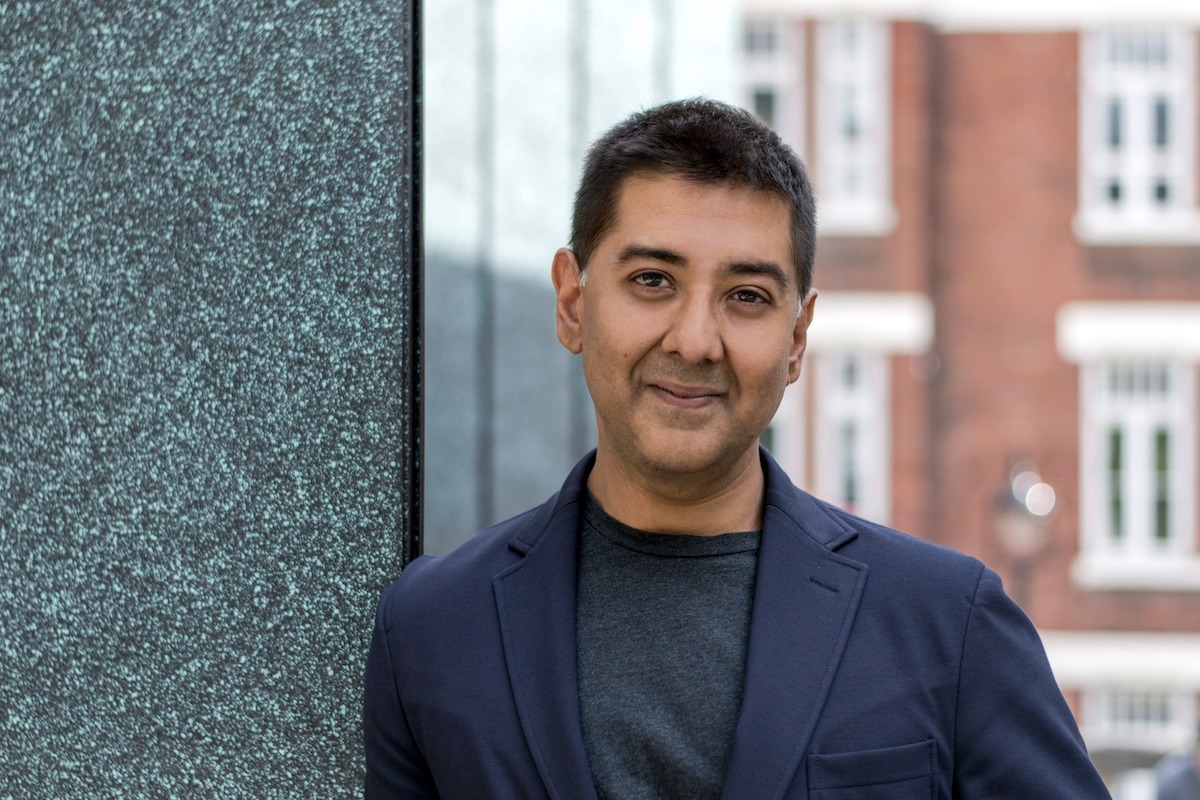
Speaking to Jewish News from Washington, D.C, where he is launching a new report, a sleep-deprived Ahmed talks eloquently about the threat to “the sentiment that underpins the values that make liberal democracy possible”.
Ahmed spends his time wading through the most deeply disturbing online antisemitism, so is well-placed to judge the threat.
“QAnon has been around for a while, but it’s found new life,” he explains. “There are antisemitic themes within it, and it has echoes of antisemitic conspiracy theories, which are deliberate.
“To persuade you to believe, every conspiracy contains at its heart a non-falsifiable leap of faith that can’t be disproved by facts. It takes advantage of xenophobia, people’s sense of powerlessness in society, fundamental human characteristics.
“In addition, modern conspiracies, such as Q, are designed to sound ludicrous if expressed, so they can be defended. It has its cake and eats it, saying ‘this speaks to a broader truth’, but is nevertheless deniable. It weaponises irony while playing on people’s polite embarrassment to voice the theory.
“David Icke’s lizard theory is a perfect example, and people laugh, but he’s a very dangerous man who’s persuaded tens of thousands of people about coronavirus, Jews, vaccines…”
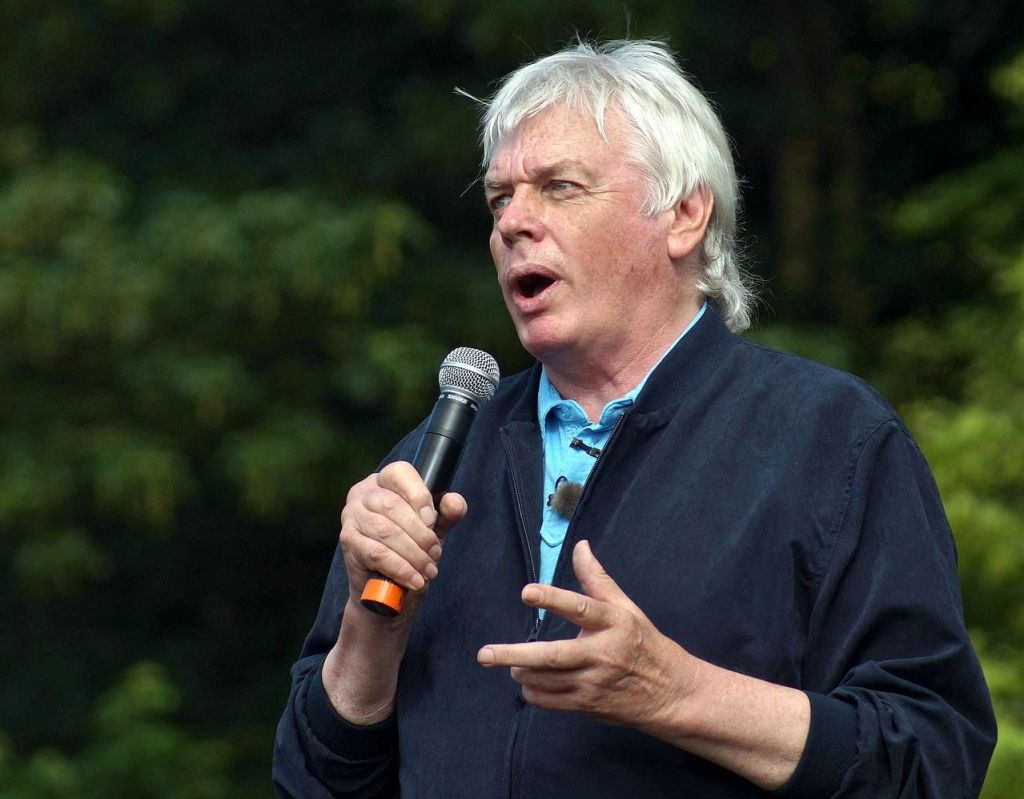
Ahmed says these “anti-elitist, faux populist” conspiracies, which aim to replace the existing order with a new one, are “politics by other means”.
Those means include “lies, disinformation, things that undermine liberal democracy” and believes these wilful actors have been “given a free pass” on social media.
“Who are the actors? Some are economically incentivised, some are foreign agents, and some are just people who are confused and believe rubbish.”
We need to care less about what it is they believe and more about cleaning up the systems on which they digest this rubbish, he says pointedly.
“It comes down to the social media companies – and they have shown an absolute lack of will to deal with it.”
That is precisely the current focus of Danny Stone, chief executive of the Antisemitism Policy Trust, whose job includes understanding the process of online radicalisation, and pushing for legislative change in the hope of avoiding it.
“QAnon is the same as every other conspiracy theory – there’s an elite out there controlling things and we need the real truth,” he says.
“It’s comfort through conspiracy in uncertain times. The difference here is: it’s leapt off.”
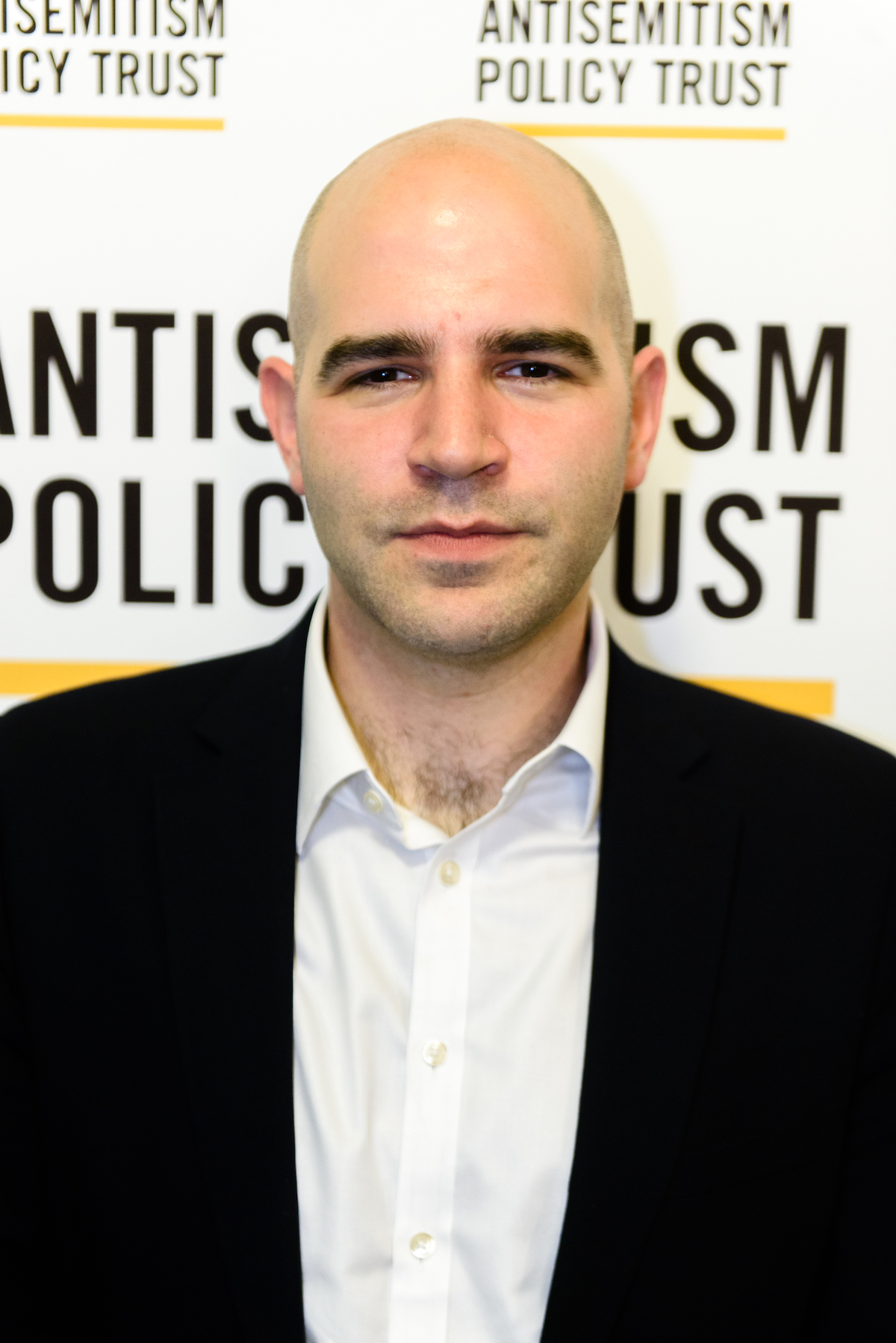
Cue the madness. Online retailer Wayfair recently had to change all its stock codes because a Q supporter said this was how the cabal was managing its child sex-trafficking.
“It doesn’t take long to radicalise people. The QAnon allegation is that there’s some Jewish or Israeli control, within this pyramid of control featuring Mossad, Jewish public figures… it’s not far off The Protocols of the Elders of Zion.
“This material is centuries-old, but it comes in this new and exciting package, with this kind of ‘James Bond’-type mystery around the identity of Q, and debunking it is both timely and costly.”
Trump is an “amplifier”, says Stone, but the more urgent focus should be on social media companies.
Change is happening, he says, adding it was “no surprise” that Facebook amended its hate speech policy recently to include “Jews as world controllers” in it, but the online world is fluid and rules are not consistently applied.
“Without continuing investment in technology and regulation, these conspiracies will continue to spread. We’re seeing real-life consequences to this online content.”

Thank you for helping to make Jewish News the leading source of news and opinion for the UK Jewish community. Today we're asking for your invaluable help to continue putting our community first in everything we do.
For as little as £5 a month you can help sustain the vital work we do in celebrating and standing up for Jewish life in Britain.
Jewish News holds our community together and keeps us connected. Like a synagogue, it’s where people turn to feel part of something bigger. It also proudly shows the rest of Britain the vibrancy and rich culture of modern Jewish life.
You can make a quick and easy one-off or monthly contribution of £5, £10, £20 or any other sum you’re comfortable with.
100% of your donation will help us continue celebrating our community, in all its dynamic diversity...
Engaging
Being a community platform means so much more than producing a newspaper and website. One of our proudest roles is media partnering with our invaluable charities to amplify the outstanding work they do to help us all.
Celebrating
There’s no shortage of oys in the world but Jewish News takes every opportunity to celebrate the joys too, through projects like Night of Heroes, 40 Under 40 and other compelling countdowns that make the community kvell with pride.
Pioneering
In the first collaboration between media outlets from different faiths, Jewish News worked with British Muslim TV and Church Times to produce a list of young activists leading the way on interfaith understanding.
Campaigning
Royal Mail issued a stamp honouring Holocaust hero Sir Nicholas Winton after a Jewish News campaign attracted more than 100,000 backers. Jewish Newsalso produces special editions of the paper highlighting pressing issues including mental health and Holocaust remembrance.
Easy access
In an age when news is readily accessible, Jewish News provides high-quality content free online and offline, removing any financial barriers to connecting people.
Voice of our community to wider society
The Jewish News team regularly appears on TV, radio and on the pages of the national press to comment on stories about the Jewish community. Easy access to the paper on the streets of London also means Jewish News provides an invaluable window into the community for the country at large.
We hope you agree all this is worth preserving.
-
By Brigit Grant
-
By Laurent Vaughan - Senior Associate (Bishop & Sewell Solicitors)
-
By Laurent Vaughan - Senior Associate (Bishop & Sewell Solicitors)
-
By Laurent Vaughan - Senior Associate (Bishop & Sewell Solicitors)
-
By Laurent Vaughan - Senior Associate (Bishop & Sewell Solicitors)


